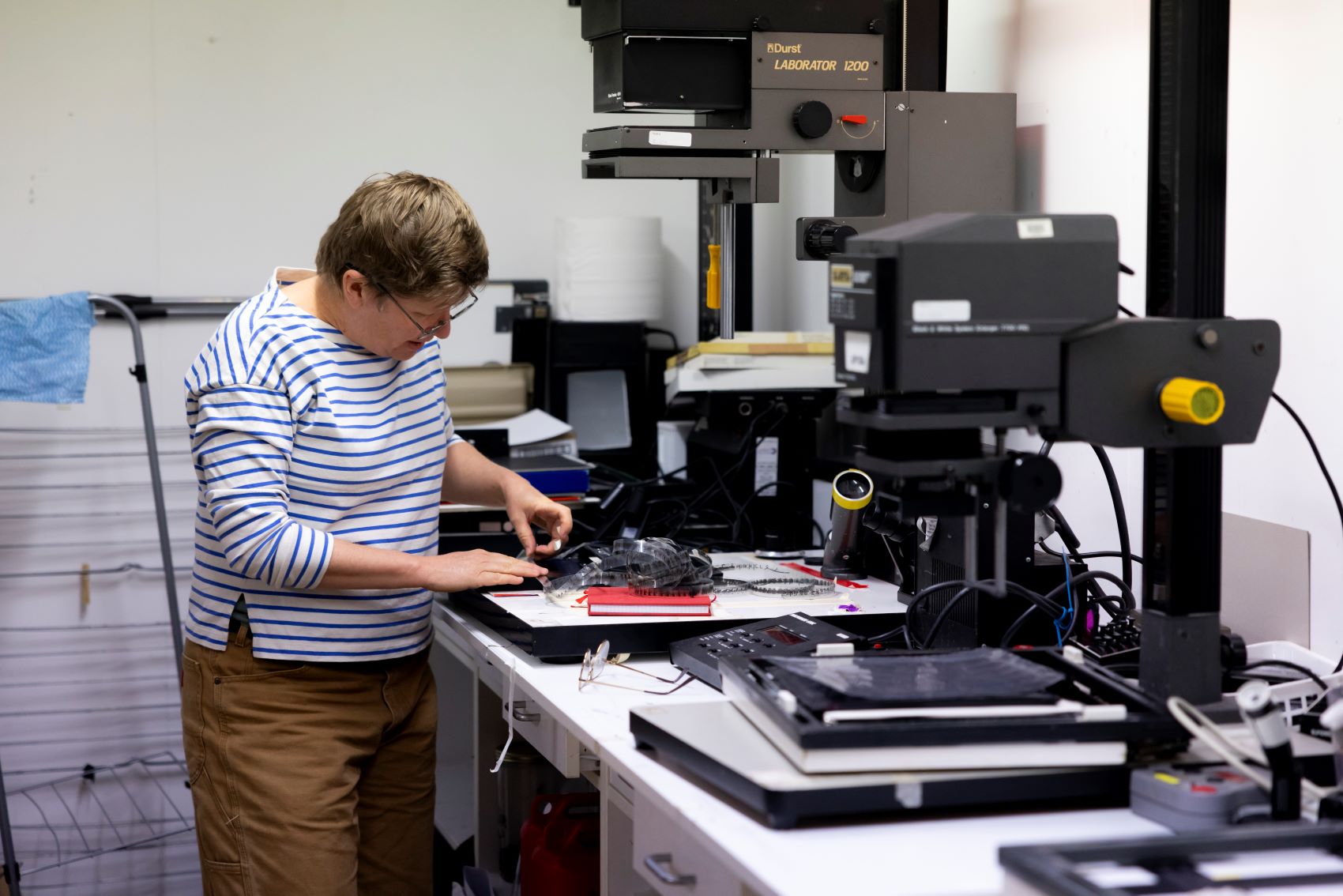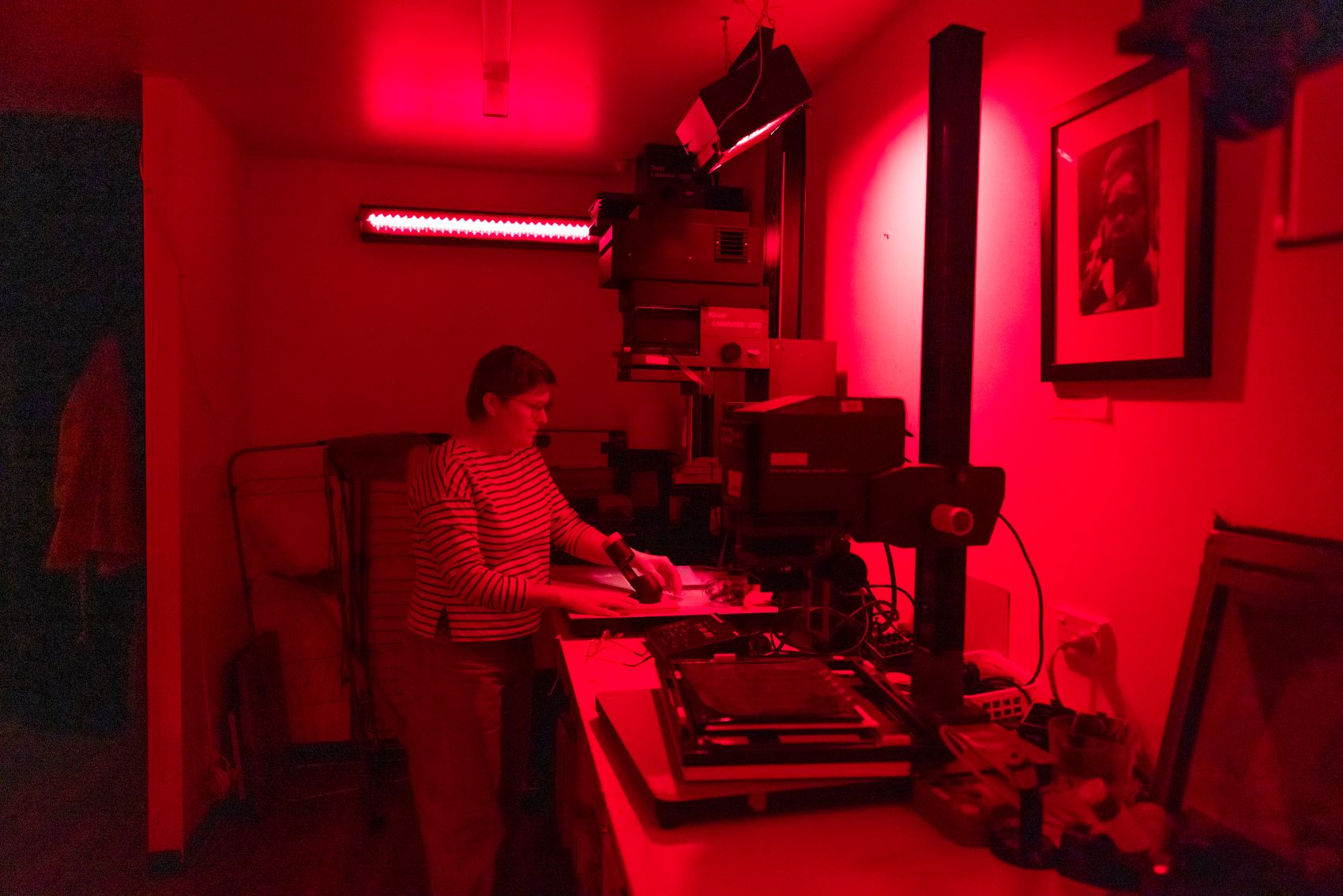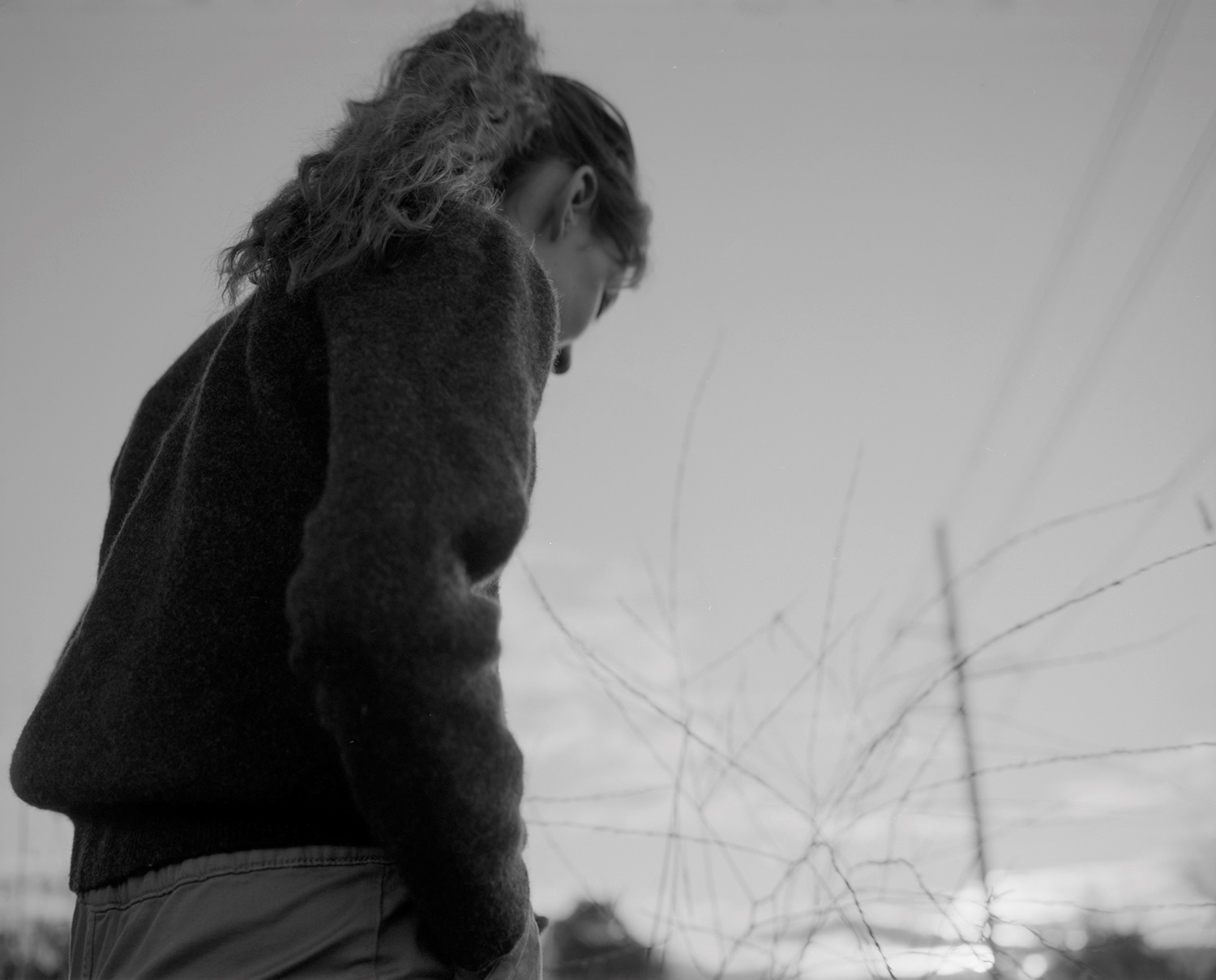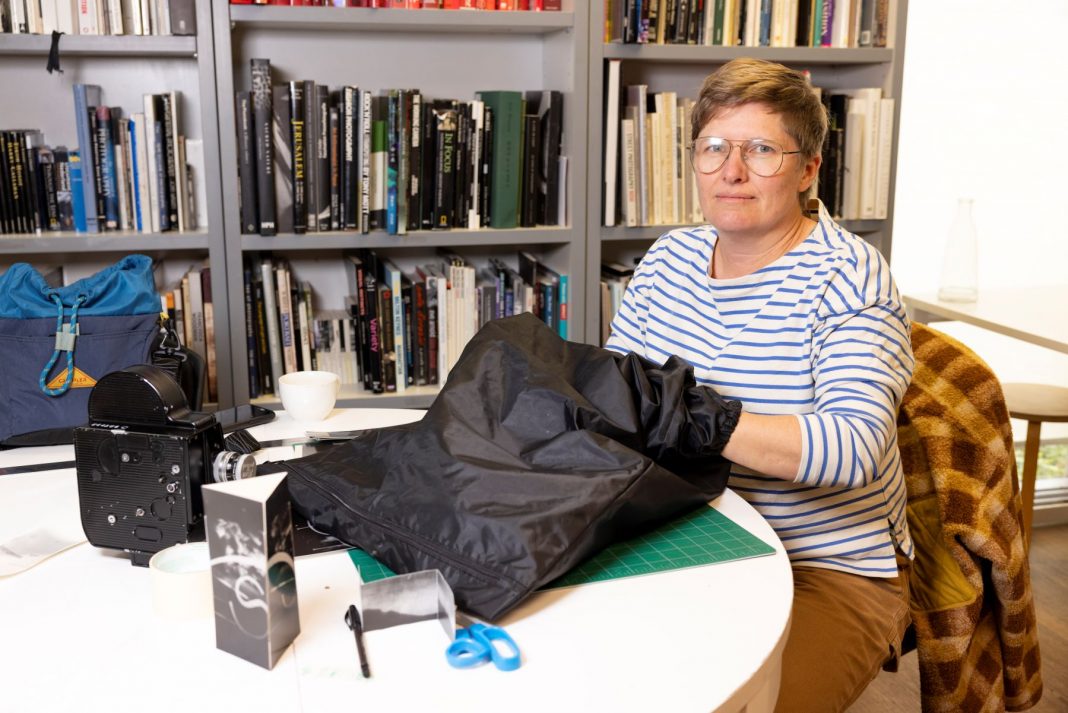There is only one publicly accessible darkroom between Sydney and Melbourne – Canberra’s PhotoAccess at the Manuka Arts Centre. Its annual residency program draws applicants from far and wide, and the works created by three such artists will be on display in Dark Matter ’23 from 26 October.
Coming from across the country, four artists spent up to nine months turning their visions into reality through the Dark Matter Residency. Given full access to the darkroom, PhotoAccess facilities and guidance from expert staff, the artists are encouraged to create innovative image-based works.
Steeped in experimentation and exploration of social, political, environmental and aesthetic relevance, the works come together in the shadows of the darkroom. The hands-on process for many is something that cannot be matched when shooting digitally.
“There is something undeniably wondrous and magical about seeing something in the world through the smallest of rectangles; when you hold a camera to your face, you are editing out huge amounts of information, ,” says Odette England, photographer. “When you go and process your film and print in the darkroom, this image emerges out of the liquid.”
Throughout their residencies, the four artists – Odette England, Isabella Capezio, Rowena Crowe and Janhavi Salvi – choose how often they visit the space. Whether they were there for months-long stretches or popping in for weeks here and there, they agree the opportunity to connect with other artists adds to their practice.
“Doing a residency is a really special thing, changing where you are and putting time aside for the weeks I do come here. You get to meet new people, interactions pop up in ways that you can’t guess,” says Rowena Crowe, a time-based artist.
Accompanying other artists who utilise the facilities at PhotoAccess on their creative outings and running into people has helped to mould the initial vision with which Ms Crowe entered the residency. She says running into someone in a pleated skirt one day had her experimenting with paper folds the next.
“Every week the project develops, it deepens in ways that I wouldn’t have guessed; it turns corners and, in some ways, it is the walking away and coming back that allows that to happen,” Ms Crowe says.


Drawn to the experimental, Ms Crowe says each of her projects take time to develop and create – whether it be still, moving or animation generally.
“They’re sort of philosophical pieces; it’s a place where I get to express stuff that’s hard to express and some of my worries about how much technology is in our lives. It’s an expressive tool for me,” she says.
For her residency, Ms Crowe’s vision was a take on experimental practices. Musicians will often prepare their instruments with foreign objects to retune them, and the photographer has done the same with her camera, loading unexposed film, clear film, Letraset and the occasional printer’s ink to be shot through her 16mm camera.
“I was interested in exploring the lens nature of photography where you’re capturing whatever it may be – landscape, your friend, something that’s catchable with light – and then interrupting that with something that’s very close to the surface of the film.”
Ms England has an interest in shooting in the themes of home/homesickness, gender, rituals and repetitive actions that we sometimes do without meaning to, landscapes and people, specifically her daughter. Shooting in both colour and black and white, Ms England says there is something special about monotone images.
“As someone who trained as a painter, I enjoy colour but I really like thinking in shapes and forms and lines and shadows much more than I do in red or greens or beiges or slate-coloured things. I prefer what black and white offers as an image,” she says.
Currently working on her next project in the United States, Ms England decided to spend seven months living in Canberra for her Dark Matter residency. Arriving with a specific plan, she says it went out the window within two weeks when she became mesmerised by South Canberra.
“I developed something on the basis of being on foot; most of the time we didn’t have a car which affords you a kind of luxury of being able to see things and meet people differently.”
During her time documenting their experience living in the capital, capturing trees growing in fields and the friendships her daughter formed, Ms England found the purpose she was searching for.

“I realised there’s a thing that dissipates with age – we let go of childlike wonder or we have it taught out of us or conditioned out of us. We don’t re-juvenile as adults, we kind of put caps and limits on things, yet for kids there’s no strings attached to dreaming big or loving big and this is what I was seeing with my camera every day with my daughter and her friends.
“There was something about Canberra, too, that I fell in love with; my entire view of being a mother and a woman and having a daughter changed dramatically, I really wanted to stay in that. From a photographer’s perspective, I also wanted to stay in that scary part of photography for as long as possible because there was a lot of not knowing and discovering and looking at pictures. I had the luxury of doing that at PhotoAccess every day,” says Ms England.
The allure of the darkroom at PhotoAccess casts a wide net in the community. Director Alex Robinson says their youngest member is just 13 and their eldest is in her 80s. He says demand has increased in the past few years as younger photographers and those wanting to go back to the old days of shooting are picking up analogue equipment.
“The renewed interest in analogue technology, I think, is a reaction to digital where everything is fast, everything’s on the screen … Any kind of process-driven work whether it’s painting or life drawing, it slows you down and it forces you to look for longer and I think, as a result of that, the work is richer,” says Mr Robinson.
Dark Matter ’23 at PhotoAccess, Manuka Arts Centre, 26 October–2 December; photoaccess.org.au
Canberra Daily would love to hear from you about a story idea in the Canberra and surrounding region. Click here to submit a news tip.



